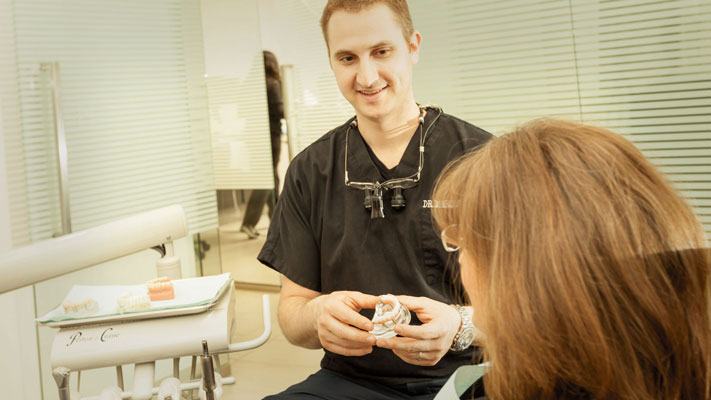People need dentures and dental implants for many reasons, including age, oral disease, injury, etc. Thanks to modern technology, there are more options available when you’re considering long term dental work. According to the American Association of Oral and Maxillofacial Surgeons, statistics show that nearly 70% of adults aged 35 to 44 years in the United States have at least one missing tooth due to an accident, tooth decay, gum disease, or dental fractures.
Two of the most common options are dentures and dental implants. Dentures are false teeth, secured with denture adhesive. Dentures might slip out of place while eating or speaking, which is embarrassing, and partial dentures might promote infection and decay in other teeth if they aren’t fitted properly.
If you are missing teeth and your gums and jaw are healthy, dental implants are a worthwhile option that surgically implants replacement teeth into the jawbone. With good oral hygiene, dental implants can last for 20 years or more. Dental implants are often a popular choice for people who have only one or two teeth missing, though they can still be an alternative to dentures if you have several missing teeth. As long as your gums and jaw are healthy, two or more implants can serve as a base of support for several replacement teeth.
In general, conventional dentures are used after all teeth are removed from the mouth and because the muscles in the mouth are learning to participate with the new set of teeth, the patient has a hard time finding comfort for a long time.
Dental implants look and function like real teeth and are much more stable, because the implant doesn’t rely on a messy adhesives to stick to the gums. Dental implants are placed into the jaw bone that used to hold the roots of the missing natural teeth. The implants over time will bond with the bone and form stable anchors for crowns or bridges. Because functioning teeth are not removed to make room for dentures, healing time is accelerated. Dental implants restore your smile and the confidence needed to do the things that may hold back someone who wears a conventional denture.

